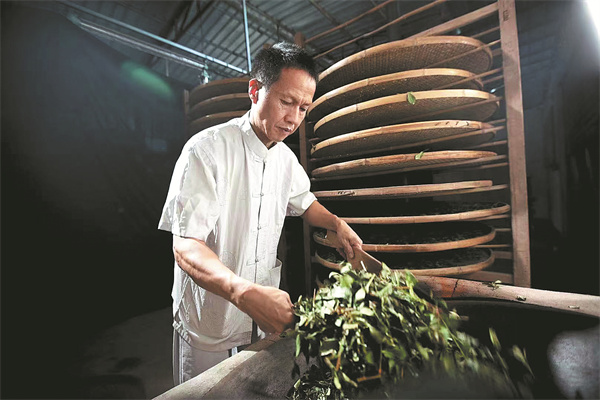

In 2000, when the popularity of Tieguanyin tea started to blossom, Anxi's reputation as a major production area of the tea also grew. That urged Chen to turn his attention to the production of the tea full-time, establishing his own tea garden and brand.
Taking the craft he inherited from his family elders, he also improved his skills by learning from others. He still remembers one day, when his wife took the tea he made to the market, few people were interested in buying it. While Chen was upset, he didn't give up, and went to the market the next day to consult other stall owners.
He was reminded to pay attention to weather and temperature when making tea, and that enlightened him. "I began to realize that when making tea, a good mastery of the craft is far from enough, as nature plays a significant role," says Chen.
He explains that natural factors like the type and altitude of the mountain tea trees, soil condition, weather and climate when picking tea leaves and processing the tea all exert an influence on the quality of the finished product.
"Many people prefer good weather, so does tea. When the weather is not that ideal, we must adjust many details, like the speed at which yaoqing (tossing tea leaves) — a procedure in making oolong tea — is done. The technique for making such adjustments comes from experience," says Chen.
"That's very difficult. You cannot make good tea with just one or two years of experience. It's a process that requires you to learn continuously. You can improve a little bit every year by learning from the mistakes you made in the past," he adds.